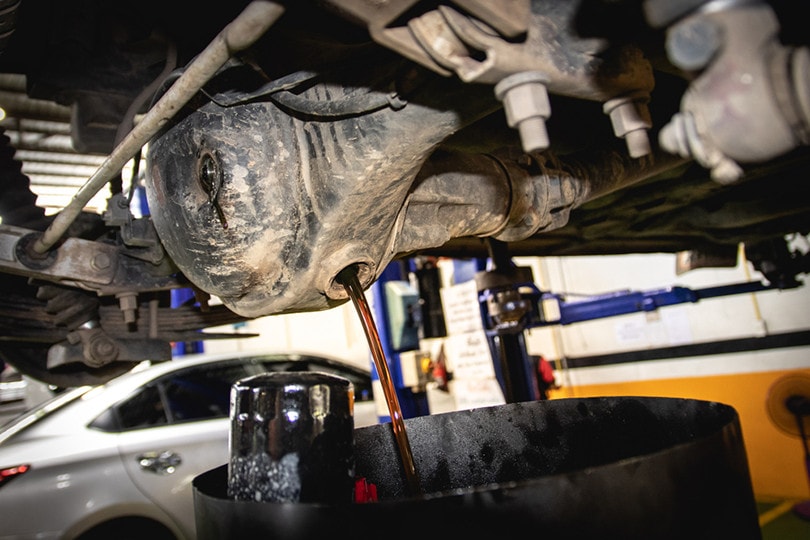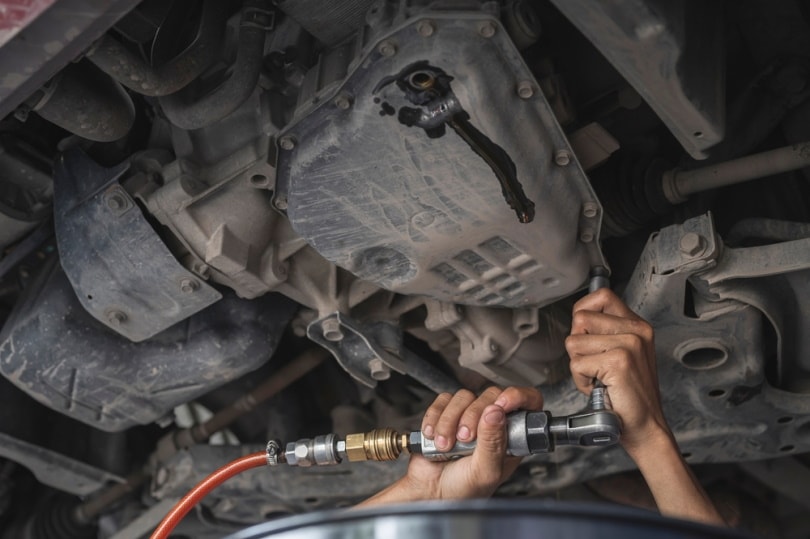How Often Should I Change the Differential Fluid in My Car? Signs, Facts & FAQs
-
- Last updated:

Differential fluid is responsible for lubricating your clutch packs, gears, and bearings in your vehicle. If your differential fluid gets too low, it can cause your differentials to become noisy and eventually fail. To avoid this from happening, change your differential fluid every 30,000–60,000 miles.
Because 30,000–60,000 miles is a pretty large estimate, keep reading to learn a more exact estimate of when you should change the differential fluid in your car.

How Often Do You Need to Change Differential Fluids?
Most manufacturers will recommend changing your differential fluid every 30,000–60,000 miles. The vast majority of vehicles make it to 50,000 miles without needing to be changed. However, many factors can impact exactly how long your vehicle’s differential fluid lasts.
Unfortunately, it can be difficult to estimate when you will need to change your differential fluid. That’s why it’s a good idea to know the signs that your differential fluid has gone bad. Knowing the signs will allow you to know when the differential fluid needs to be changed. Once again, it will likely fall between the 30,000–60,000 mile point.

What Happens If I Don’t Change My Differential Fluid?
Differential fluid is something that most people don’t think twice about in their vehicle, but it actually plays an important role in vehicle maintenance and protects your investment. The point of the differential fluid is to lubricate the clutch pack, gears, and bearings in your back vehicle.
Eventually, all differential fluid goes bad. Additionally, there can be leaks that cause the differential fluid to get low. In either case, your differential can become noisy and fail. Whenever the differential begins to fail, your gears can seize, causing your rear wheels to lock up. As you would imagine, locked-up rear wheels can cause a lot of damage and even an accident.
Needless to say, the consequences of failing to change your differential fluid are pretty severe. Mechanics, for the most part, really aren’t trying to upsell you whenever they recommend getting your fluid changed.
Related Read: How Often Should You Change Brake Fluid? What You Need To Know!
How Do I Know If My Differential Fluid Needs to Be Changed?
Knowing when your differential fluid needs to be changed can be a bit difficult. There are often no sensors that let you know when the fluid needs to be filled, and it can be difficult to predict when the fluid goes bad. You’ll have to learn to communicate with your car instead.
There are a few signs you can look out for. Your differential fluid may need to be changed out if you are experiencing the following symptoms:
- Oil becomes contaminated with other substances
- Your vehicle creates a grinding noise when you turn corners
- Vehicle makes a humming noise
- Your vehicle vibrates when you drive
If you are experiencing any of the symptoms above, take your vehicle to a mechanic. Differential fluid is very difficult to change and requires the skill of a mechanic. A mechanic will be able to check out the differential fluid, replace it if need be, or find the actual cause for the problem.


Final Thoughts
Shoot to change your differential fluid every 30,000–60,000 miles. Beyond this range, the fluid is likely to go bad, and there may be a leak or contamination to exacerbate the problem. Pay attention to signs of low differential fluid to know when it’s time to see a mechanic.
Remember, changing your differential fluid really is an important part of maintaining your vehicle. Not only does failing to replace your differential fluid cause damage to your vehicle, but it can get you in a serious accident. If you have any worries about your differential fluid, contact a mechanic as soon as possible.
Featured Image Credit: PANUDET SRICHAN, Shutterstock
Contents

